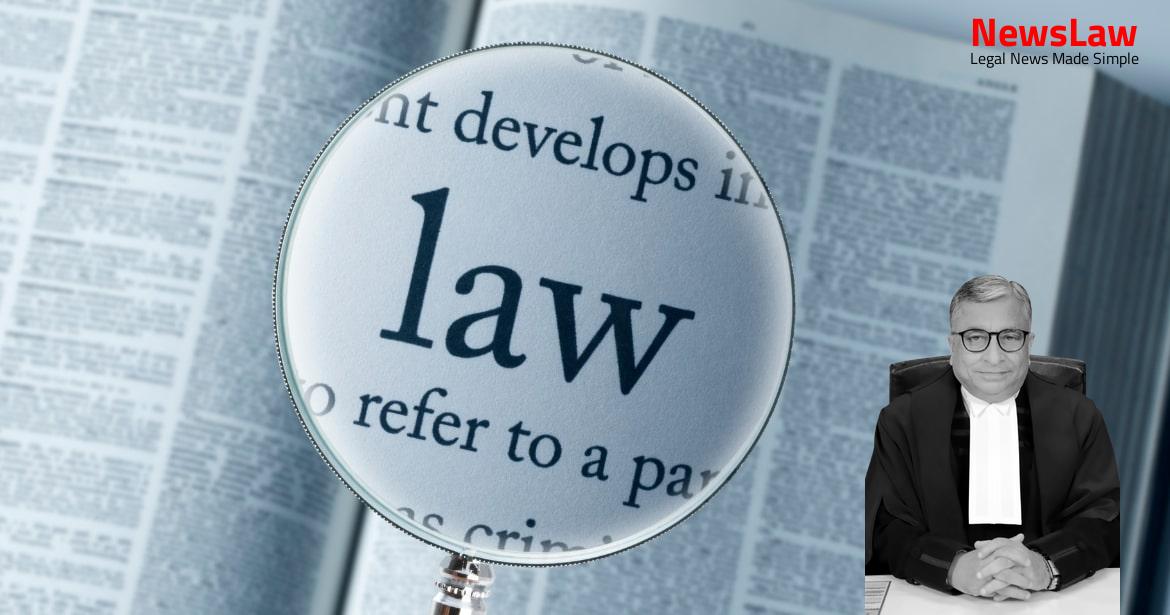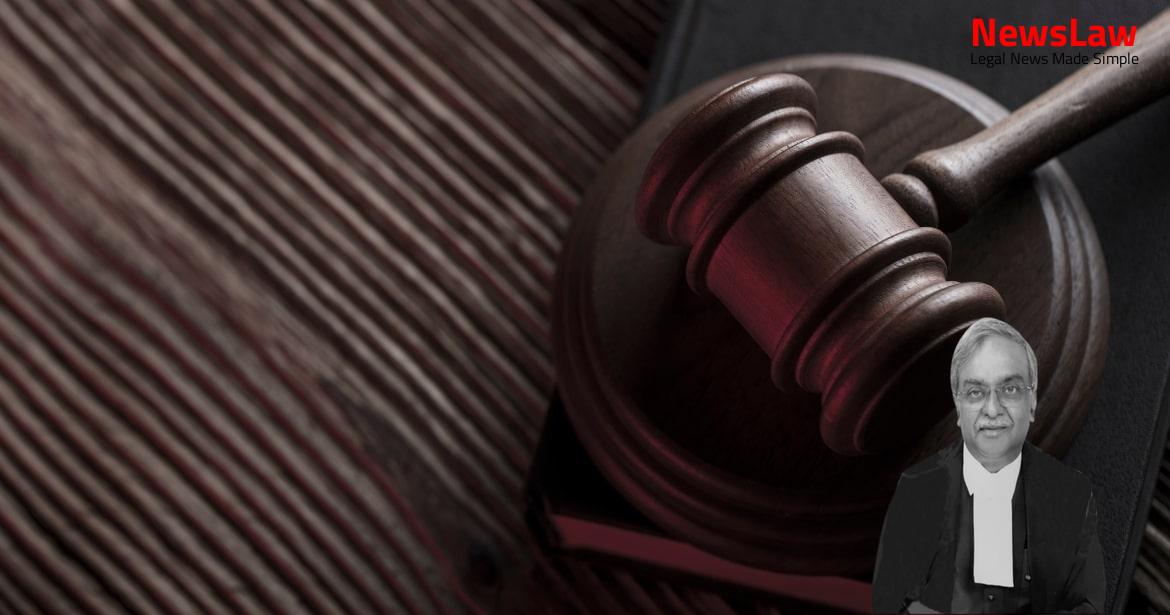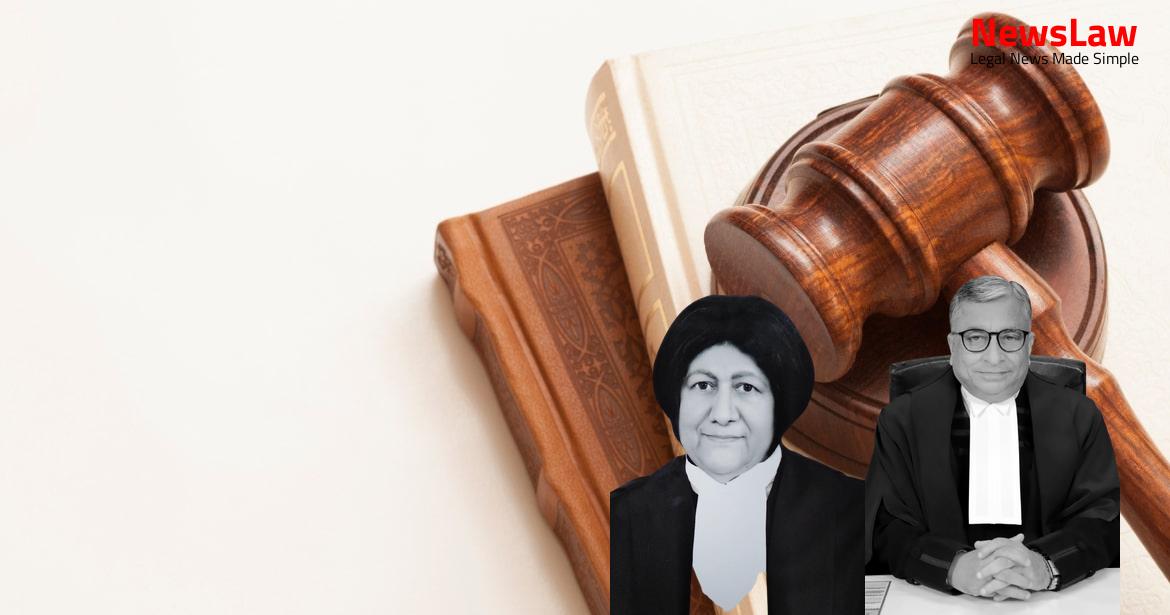This blog delves into the recent court judgment that provides clarification on the requirement of preliminary inquiries in legal proceedings. Focused on the legal analysis conducted by the court, the discussion revolves around key provisions of the CrPC, including Section 340, and the court’s discretion in deciding the necessity of such inquiries. Stay tuned to unravel the intricacies of this significant aspect in legal procedures.
Facts
- Judgment dated 22.01.2019 passed by the High Court of Punjab and Haryana quashed FIR No 74 dated 13.4.2008 against the Respondent.
- The FIR was registered for offenses under Sections 420, 467, 468, and 471 of the IPC.
- The High Court accepted the Respondent’s principal ground with the Deputy Commissioner-cum-Chief.
- Respondent got the subject land mutated in his favour along with his two cousins.
- Respondent filed a petition under Section 482 of the CrPC seeking quashing of the mutation proceedings, which was allowed.
- Respondent filed an appeal against the order of the Tehsildar claiming joint representation was not considered which was dismissed.
- FIR registered against the Respondent for alleged forgery in legal documents related to the land transfer.
- Various orders passed by different authorities regarding the mutation of land in the names of different parties including the Respondent’s elder sister-in-law and mother.
- Deputy Commissioner-cum-Chief Sales Commissioner restored the initial order of the Tehsildar noting forgery by the Respondent.
- Directions were issued to immediately get an FIR registered against the Respondent based on the report submitted by the Tehsildar.
- FIR registered against the Respondent by the Sub-Divisional Magistrate, Patti.
- FIR found to be invalid as it was filed without proper inquiry and opportunity for the Respondent to be heard.
- Tehsildar allowed the application for conveyance in favour of the Respondent’s mother, Karamjit Kaur.
- Respondent filed a suit for declaration of ownership of the subject property in the year 2005 which is still pending.
Also Read: Interpretation of Will Clauses in Property Dispute
Issue
- Section 195(1)(b)(ii) of the CrPC states that no court can take cognizance of certain offenses if they are committed in respect of a document produced or given in evidence in a court proceeding.
- Section 195(3) of the CrPC defines the term ‘Court’ to include Civil, Revenue, or Criminal Courts, as well as tribunals constituted by Central, Provincial, or State Acts.
- The Deputy Commissioner-cum-Chief Sales Commissioner and Sales Commissioner, Patti, were functioning as Revenue Courts in this case.
Also Read: Preservation of Open Spaces in Development Plans
Arguments
- Learned counsel for the Respondent argued in support of the judgment of the High Court.
Also Read: Jurisdictional Limits and Statutory Compliance in Development Planning
Analysis
- The court may conduct a preliminary inquiry before filing a complaint to determine if it is expedient in the interest of justice to proceed.
- The court’s decision is based on the impact of the offense on the administration of justice, not solely on the injury suffered by the affected person.
- The court is not obligated to make a complaint under Section 195(1)(b) but must form an opinion that it is expedient in the interests of justice.
- The person accused has a legal right to be heard before the Magistrate if called upon, but it is not mandatory to conduct a preliminary inquiry.
- If the court finds the allegations groundless, the accused must be discharged with reasons recorded.
- The court may proceed as if the case was instituted on a police report, and it has the power to make a complaint if deemed necessary.
- The accused person does not need to be present for the court to decide on the expediency of initiating an inquiry.
- There is no statutory requirement to provide an opportunity for the accused to be heard during the preliminary inquiry.
- The right to participate in the inquiry is indicated by the appeal provision, and the accused can attempt to have the allegations deemed groundless.
- The court may dispense with a preliminary inquiry if it can form an opinion without one.
- The purpose of the preliminary inquiry is to assess whether it is expedient in the interest of justice to inquire into the alleged offense.
- The inquiry is not to determine guilt but to decide on the need for further probing into the offense.
- The court should make a finding based on whether it is expedient in the interest of justice to further investigate the offense.
- The lack of a preliminary inquiry does not nullify the court’s opinion on the necessity of investigation.
- The Magistrate must follow the procedure prescribed in Chapter XIX of the Code for offenses falling within the scope of ‘warrant case.’
- The key provision under consideration is Section 340 of the CrPC, which pertains to the procedure for making a complaint regarding an offence mentioned in Section 195.
- Section 340 allows the court to conduct a preliminary inquiry, if deemed necessary, before recording a finding and making a written complaint.
- According to a previous Supreme Court ruling in the case of Pritish, conducting a preliminary inquiry and providing an opportunity to the accused before filing a complaint is not mandatory.
- Once the court decides to make a complaint, the Magistrate proceeds under Section 238 to Section 243 of the Code, ensuring relevant documents are provided to the accused and allowing the accused to plead guilty or not guilty.
- Section 341 grants the parties involved the right to appeal the decision to make a complaint to a higher court if necessary.
- If the Magistrate finds grounds for presuming the accused committed the offence during the inquiry, they must frame a charge in writing against the accused as per Section 240 of the Code.
- The three-Judge Bench decision in Sharad Pawar did not provide reasons for departing from the opinion expressed by a Coordinate Bench in Pritish regarding the necessity of a preliminary inquiry under Section 340 of the CrPC.
- The matter is directed to be placed before a larger Bench to consider whether Section 340 of the CrPC mandates a preliminary inquiry and an opportunity for the accused before a complaint is made under Section 195 of the Code.
- The scope and ambit of such preliminary inquiry needs to be clarified.
- Some High Courts have held that the persons against whom proceedings are instituted do not have the right to participate in the preliminary inquiry.
- Filing a complaint after forming an opinion about the committed offence is not mandatory and is done only if justice requires.
- Observations from Pritish and Iqbal Singh Marwah cases regarding the scope of Section 340 of the CrPC are noted.
- In the interest of justice, the Court allowed appeals, set aside the order, and remitted the matter to the Single Judge to decide the application afresh under Section 340 of CrPC after giving reasonable opportunity of being heard to the defendants.
Decision
- If the defendant pleads not guilty, the Magistrate must proceed to conduct the trial.
Case Title: THE STATE OF PUNJAB Vs. JASBIR SINGH (2020 INSC 226)
Case Number: Crl.A. No.-000335-000335 / 2020



